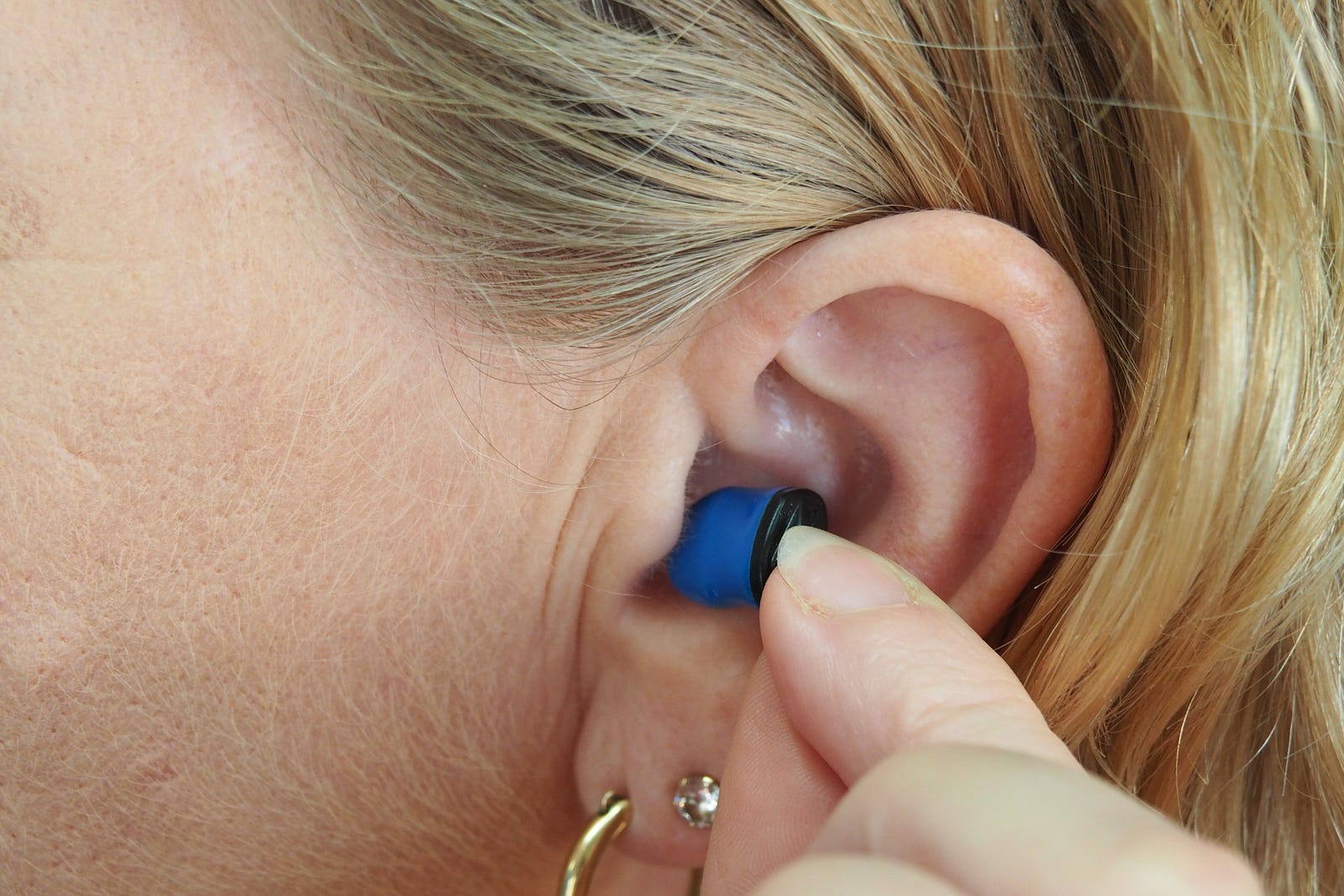IN A WORLD OBSESSED WITH THE ELIXIR OF ETERNAL YOUTH, the pursuit of health and longevity has taken center stage. Today, I offer a mini-course in 3 healthspan hacks.
Lifespan is the number of years someone lives from birth until death. On the other hand, health span is the number of years someone is healthy without chronic and debilitating disease.
Did you know that while lifespan has steadily increased over the years, our health span has not kept pace?
In other words, we are living longer, but we are also living with more chronic and debilitating diseases.
So, the question is: how can we extend our lifespan and health span? In this article, we’ll explore three surprising healthspan hacks you may have missed, which could be the key to unlocking the secrets of enduring wellness.
As I Age
As I age, I am increasingly concerned with health span rather than lifespan.
While conventional wisdom dictates the importance of a balanced diet, regular exercise, and good sleep, hidden gems exist — unconventional healthspan hacks that often escape the limelight.
In exploring the quest for eternal vitality, we will delve into three surprising healthspan hacks that have often been overshadowed by more traditional approaches, shedding light on their potential to unlock the secrets of enduring wellness.
The Quest for Eternal Vitality
From the legendary quest for the Fountain of Youth to the modern obsession with anti-aging creams and treatments, humanity has perpetually sought the key to eternal vitality.

Traditional approaches to healthspan enhancement have primarily revolved around well-established practices such as maintaining a nutritious diet and engaging in regular physical activity.
While these fundamentals play a crucial role, the lesser-known and often dismissed healthspan hacks offer a more nuanced and comprehensive approach to the intricate tapestry of well-being.
#1 Healthspan Hack: Hearing Aids
Hearing loss is a prevalent yet often underestimated aspect of aging that can significantly impact overall health.
Recent research has highlighted the link between untreated hearing loss and cognitive decline, emphasizing the importance of addressing this sensory impairment for optimal healthspan.
The use of hearing aids not only improves auditory perception but is also associated with cognitive benefits.
Hearing Aid Evidence
Studies suggest that treating hearing loss may help mitigate cognitive decline, reducing the risk of conditions like dementia and Alzheimer’s disease.

However, scientists have yet to test (via large, randomized studies) potential associations between hearing loss treatment and improved cognition.
Hearing Aid Study
To bridge the gap in our understanding, researchers funded by the U.S. National Institutes of Health conducted a study with nearly 1,000 adults aged 70 to 84.
They wanted to see if using hearing aids could make a difference in how quickly people’s thinking abilities decline as they get older.

The researchers selected participants from two groups: one group of about 250 older adults who were part of a long-term heart health study and another group of 739 people from the local communities around the study sites.
The participants from the heart health study were at a higher risk of developing dementia because they were older and showed faster rates of cognitive decline compared to those from the general community.
Hearing Aid Study Design
The researchers split the participants into two groups randomly. Half of them were given hearing aids and taught how to use them, while the other half joined a program that promoted healthy aging.
Both groups had regular follow-up visits every six months to reinforce what they had learned.
Before the study began and every year for three years, all participants underwent a series of tests to measure how well their brains worked.
These evaluations helped the researchers see if using hearing aids or participating in the health education program affected how their minds function over time.
Hearing Aid Study Results
People who used hearing aids in a study found that their ability to communicate significantly improved.
However, those who participated in a health education program did not experience any improvement in their hearing or communication skills.
When researchers looked at all the participants, they didn’t find a noticeable difference in how quickly people’s thinking abilities changed, whether they used hearing aids or not.
But, when they focused on a group of people from a heart health study who were at a higher risk of dementia, they discovered something important.
Those who used hearing aids had a nearly 50 percent lower cognitive decline rate than those in the health education group.
This finding means that using hearing aids can help keep our minds sharp as we get older by improving communication and engagement in activities that require thinking.
#2 Healthspan Hack: Quality Sleep
In the hustle and bustle of modern life, we often sacrifice sleep at the altar of productivity.
However, I cannot overstate the significance of sufficient sleep in promoting healthspan.

Beyond the common knowledge that sleep is essential for physical restoration, emerging research underscores its profound impact on cognitive function, immune health, and longevity.
Why Does Sleep Promote Health?
Optimizing sleep quality involves ensuring an adequate duration and prioritizing deep, restorative sleep cycles.
The intricate dance of various sleep stages contributes to cellular repair, memory consolidation, and hormone regulation.
Boost Your Immune System With This Often-Forgotten Approach
CHRONIC INSUFFICIENT SLEEP CAN NEGATIVELY IMPACT your immune system. If you do not get adequate sleep, you can…medium.com.
By establishing consistent sleep patterns and creating a conducive sleep environment, individuals can harness the rejuvenating power of sleep to enhance their overall healthspan.
Stick to a sleep routine, aim for nightly seven to nine hours of sleep, and limit sugar intake the day after sleep disruption.
Sleep and Healthspan Study
Researchers used a prospective cohort design based on the U.K. Biobank (UKB) to examine the associations between sleep quality and health span (how well you live).
The study included 328,850 people aged 37 to 73. The study looked at various health events associated with longevity, such as cancer, heart failure, heart attack, lung disease, stroke, dementia, and diabetes, to determine when someone’s overall health might decline.
The researchers assessed sleep quality using a score based on five factors: how long people sleep, their natural sleep patterns, difficulty falling asleep, daytime sleepiness, and snoring.

The study aimed to determine if how people sleep is connected to their risk of facing major health problems linked to how long and how well they live.
Researchers used a sleep score based on different sleep-related behaviors and calculated the likelihood of these health issues happening. The study also assessed how much of a difference good sleep quality could make for public health.
Sleep and Healthspan Study Results
Here are the thought-provoking results:
Healthy sleep quality was associated with a reduced risk of premature end of healthspan, suggesting healthy sleep behavior may extend health span.
Of course, further studies are suggested to establish causality and potential mechanisms.
Those with healthy sleep quality had about a one-seventh (15 percent) lower chance of premature death than those with poor sleep quality.
The risk of terminated health span dropped by a relative four percent for every additional sleep score.
#3 Healthspan Hack: Social Connection
While the importance of social connections for mental and emotional well-being is widely acknowledged, their role in promoting healthspan needs to be more recognized.
A robust social network has numerous health benefits, including reduced stress, improved immune function, and a lower risk of chronic diseases.
Loneliness, on the other hand, has been associated with adverse health outcomes comparable to the impact of smoking or obesity.

Fostering meaningful social connections through family, friends, or community engagement contributes to a sense of purpose and belonging that can positively influence healthspan.
Social connection emerges as a powerful determinant of longevity in the intricate web of mind and body.
Social Connection and Healthspan Connection
Being alone or feeling lonely can be bad for your health in several ways:
- Heart Problems. Being isolated or lonely has been linked to an increased risk of heart disease and strokes.
- Diabetes Risk. Loneliness is also associated with a higher chance of developing type 2 diabetes.
- Mental Health Issues. Feeling alone can contribute to depression and anxiety. It might even make addiction problems more likely.
- Suicidal Thoughts and Self-Harm. Loneliness is connected to an increased risk of thinking about suicide or harming oneself.
- Memory Issues. Being socially isolated might contribute to problems with memory and thinking, which are associated with conditions like dementia.
- Shorter Lifespan. Loneliness and isolation can lead to an earlier death.
It’s important to note that being socially isolated doesn’t only mean physically being alone; it can also happen if you don’t have strong relationships or support from others, even if people surround you.
Social Connection: Loneliness is Common in the U.S.
Loneliness is more about feeling disconnected and not having meaningful relationships, even if you have a lot of acquaintances.
Various factors — including where you live and work — can affect how lonely or isolated you feel.
Still, if you are lonely, the risk of suffering from chronic disease increases substantially. Here are the numbers for those 65 or older:

Nearly one in four adults aged 65 and older are socially isolated. Moreover, more than one in three adults aged 45 and older feel lonely in the United States.
Social Connection: Magnitude of Risk to Health
I was shaken when I saw the impact of social isolation on health. Isolation can increase your risk of several chronic diseases.
For example, social isolation increases your dementia risk by 1.5 times.
Isolation can also increase your heart disease and stroke risk by 1.3 times, respectively.
Conclusion – 3 Healthspan Hacks
In the holistic pursuit of eternal vitality, considering the often overlooked factors of hearing aids, quality sleep, and social connection is paramount.
Addressing hearing loss with modern technology, prioritizing restorative sleep, and nurturing meaningful social connections can collectively contribute to a longer, healthier life.
As we expand our understanding of the multifaceted nature of healthspan, integrating these three factors into our lifestyle choices is pivotal in unlocking the secrets to a life of enduring vitality.
Thank you for reading “3 Healthspan Hacks.”




